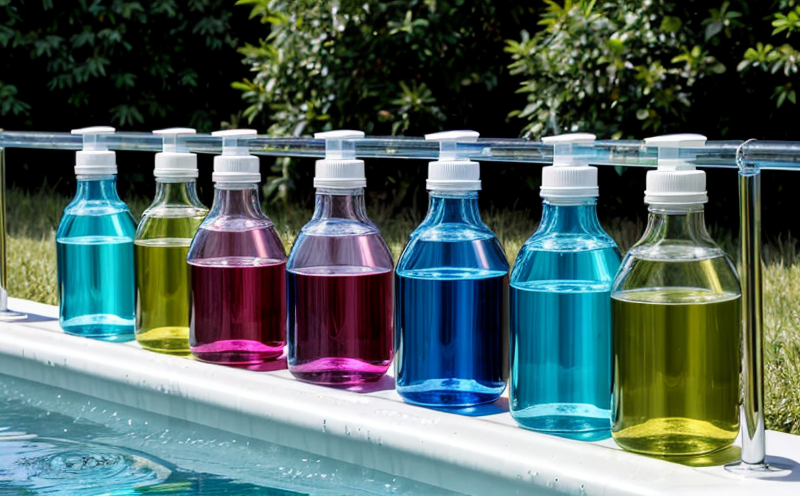ISO 10359-2 Fluoride by Distillation Colorimetry Test in Water
The ISO 10359-2 standard provides a robust method for determining fluoride ion concentration in water samples using distillation colorimetry. This technique is particularly useful in sectors such as water and wastewater treatment, where the presence of fluoride can impact both product quality and public health.
Fluoride testing is critical in various applications including potable water monitoring, industrial discharge control, and environmental compliance. The distillation colorimetric method involves converting fluoride ions into a stable fluoride complex through distillation under controlled conditions. This complex reacts with a specific reagent to produce a colored product whose intensity is directly proportional to the fluoride concentration.
Accurate measurement of fluoride in water is essential for ensuring compliance with international standards such as ISO 10359-2 and local regulations like EPA guidelines. The method's precision and accuracy are ensured through meticulous sample preparation, which includes thorough filtration and appropriate dilution to ensure that the sample falls within the linear range of the calibration curve.
Instrumentation for this test typically comprises a distillation apparatus with temperature control, a colorimeter for measuring absorbance, and reagents specific to the ISO 10359-2 protocol. The process begins by transferring the water sample into a suitable container, followed by distilling it under controlled conditions to separate fluoride ions from other contaminants.
The distillate is then reacted with a colorimetric reagent, and the absorbance of the resulting solution is measured against a series of standard solutions. The calibration curve derived from these standards allows for accurate quantification of fluoride concentration in the original water sample. This method is preferred for its simplicity and reliability, making it a cornerstone of water quality analysis.
Quality managers and compliance officers rely on such tests to ensure that water meets stringent quality benchmarks. For R&D engineers, this process serves as an essential tool for optimizing treatment processes and developing new formulations. Procurement professionals benefit from accurate fluoride testing in managing supplier audits and ensuring product integrity.
Eurolab Advantages
- Precision and Reliability: Our laboratory adheres strictly to ISO 10359-2 standards, ensuring accurate fluoride measurements that meet international quality benchmarks.
- Expertise in Sample Preparation: We employ skilled technicians who ensure that samples are prepared meticulously for optimal test results.
- Advanced Instrumentation: Our laboratory is equipped with state-of-the-art distillation and colorimetric equipment, providing precise and repeatable measurements.
- Detailed Reporting: Comprehensive reports include all calibration data, absorbance readings, and detailed analysis of sample results.
Customer Impact and Satisfaction
Customers in the water and wastewater sector benefit significantly from our ISO 10359-2 fluoride testing services. Compliance with international standards ensures that products meet regulatory requirements, thereby reducing the risk of non-compliance fines and reputational damage.
R&D teams can rely on accurate data to refine treatment processes and enhance product quality. Procurement professionals can verify supplier compliance more effectively, leading to better supply chain management and cost optimization.
Our commitment to accuracy and reliability has earned us a reputation for excellence in the industry. Satisfied customers frequently return for additional testing services, recognizing the value we bring to their operations.
Competitive Advantage and Market Impact
- Regulatory Compliance: Ensuring that products meet strict international standards enhances market entry opportunities in competitive regions.
- Quality Assurance: Accurate fluoride testing supports continuous improvement in water treatment processes, leading to higher product quality and customer satisfaction.
- Cost Efficiency: By ensuring compliance with regulations upfront, businesses can avoid costly recalls and rework.
- Innovation Support: Reliable data from ISO 10359-2 testing enables R&D teams to innovate more effectively in water treatment technologies.





